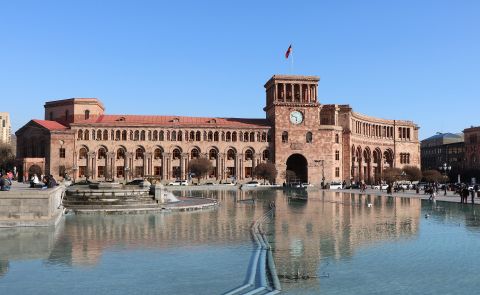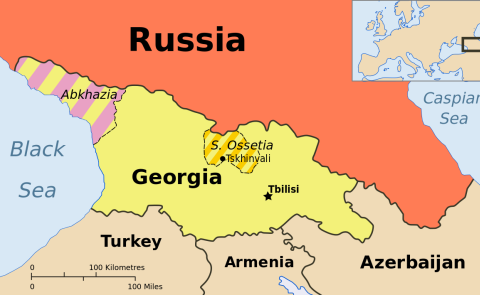
Nineteenth day of the renewed Nagorno-Karabakh war
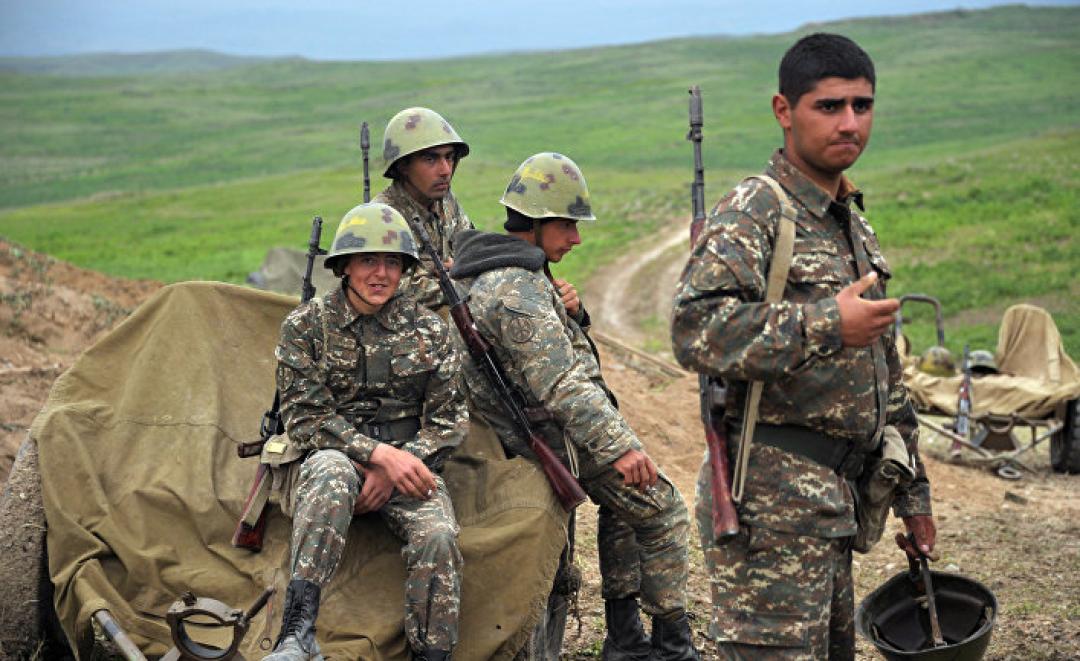
Military developments
On 15 October, the spokesperson of Armenia’s Defence Ministry Shuhan Stepanyan reported that during the night, relatively stable tension remained in the conflict zone. “In the morning, in the northern and south eastern directions, the enemy resumed active artillery fire,” she added. In addition it was reported that the capital of Stepanaker/Khakendi was shelled.
The Armenian Ministry of Defence (MOD) reported that at least 604 soldiers have died since the fighting began and 32 civilians have also passed and more than 100 wounded.
The Azerbaijani MOD reported that on the night of 14-15 October, the situation in the Agdere-Aghdam and Fizuli-Hadrut-Jabrayil areas of the front, as in previous days, remained tense. It was also emphasised that the Armenian forces shelled the territories of Goranboy, Terter, Aghdam, and Aghjabedi regions. The MOD also reported the shelling of a cemetery in the city of Terter during a funeral, 4 civilians were killed and 5 injured.
According to Azerbijan's President Aliyev, the Azerbaijani army took over the village of Arish in the Fuzuli district, Doshulu village of Jabrayil district and the Edisha, Dudukchu, Edilli, Chiraguz villages of Khojavand district.
The Prosecutor General’s Office of Azerbaijan has updated the data on the number of victims and wounded among the civilian population. According to the Prosecutor General, 43 people died and 218 were wounded during the hostilities with 1,592 private houses damaged. There is still no publicly accessible information regarding deaths of Azerbaijani servicemen.
Political developments
The de facto President of Nagorno-Karabakh Arayik Harutyunyan, using the law regarding the implementation of martial law as a basis, signed a decree imposing restrictions on the right to free movement in the region’s territory, as well as establishing a special regime for inhabitants to be able to leave the territory.
Armenia’s Civil Aviation Committee reported that a flight by Qatar Airways that was scheduled for 15 October and designed to bring humanitarian aid to Armenia from Los Angeles did not take place, because Turkey blocked the flight from flying through its airspace. “We also have reason to assert that Turkey deliberately closed its airspace. It is not the first time Turkey has been hindering cargo transportation to Armenia. That country began to create obstacles even before the war, demanding from airlines a detailed list of cargo when crossing their airspace. Although the provision of airspace is the sovereign right of each country, according to international practice, data is required on dangerous goods for the correct response in an emergency. The aid from the USA has passed the verification stage," stated the President of Armenia’s Civil Aviation Committee Tatevik Revazyan.
Azerbaijani President Ilham Aliyev gave an interview to the France 24 TV channel where he touched on a variety of topics. While speaking on the violations of the ceasefire, Aliyev said that since the ceasefire was announced all the shelling from Azerbaijani side stopped and that the Azerbaijani authorities never deliberately attacked civilians in any city or village on the territories of Nagorno-Karabakh, only military installations.
Speaking on Turkey’s involvement in the conflict, Aliyev emphasised that it only plays a political role in the conflict. “There are no Turkish forces, Turkish F-16s are here but they are left here after the joint military training. By the way, last year we had ten joint military training with Turkey, including the air force. This year due to a pandemic, we had only two and it happened that just after the military training this outbreak happened. So, we decided to keep F-16 on the ground and they are on the ground. They are not on the air,” Aliyev said. Responding to the question “how many Turkish drones was Azerbaijan deploying?” Aliyev responded that Azerbaijan has enough in order to achieve their targets.
Aliyev also touched on the work of the OSCE Minsk Group during the conflict, particularly over French President Emmanuel Macron’s statements. “As you know, President Macron called me several times and our last conversation was very positive. We are committed to efforts to find a political solution to the conflict. I have been informed that France, as co-chair, will remain neutral, since this is the mandate of the co-chair. This morning I was informed that the French Foreign Minister [Jean-Yves Le Drian] issued a statement that France should remain neutral, as it is a co-chair of the Minsk Group. We fully support this position, and our position has always been that all co-chairs should remain neutral, that they should not take sides, because otherwise, the behaviour is contrary to their mandate,” he said.
International developments
On 14 October, Russia’s President Vladimir Putin and his Turkish counterpart Recep Tayyip Erdogan had a phone call. According to the press department of Russia’s president, Putin and Erdogan discussed in detail the situation in Nagorno-Karabakh. Both sides were said to have reaffirmed the importance of observing the humanitarian truce agreement reached on 10 October in Moscow. They both spoke in favour of stepping up the political process, in particular, based on the OSCE Minsk Group proposals.
Putin expressed his serious concern over the participation of militants from the Middle East in the hostilities. The urgent need for solidarity efforts was emphasised with a view to an early end to the bloodshed and a transition to a peaceful settlement of the Nagorno-Karabakh problem. He expressed hope that Turkey, as a member of the OSCE Minsk Group, would make a constructive contribution to the de-escalation of the conflict.
During the commencement of a new academic year in higher education institutions in Turkey, Erdogan emphasised his country’s role in the Nagorno-Karabakh conflict. “There is the Armenian oppression in Azerbaijan. They are our brothers. We can’t remain spectators to this. Throughout history… [this] responsibility [has been] put on our shoulders by our ancestors,“ he said.
See Also

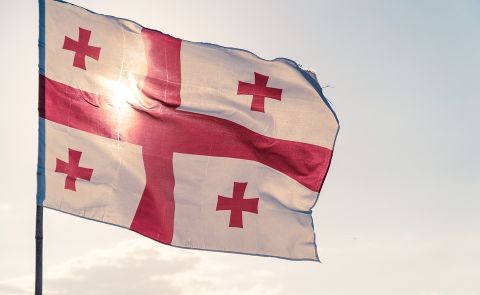
Georgian Bishop Accuses Government Official of Plotting Assassination; Opposition Leader Alleges Husband’s Abduction
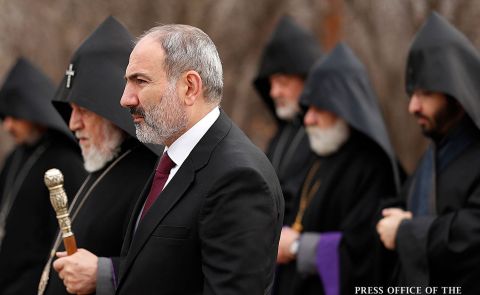
Armenian Government and Church Face Growing Tensions Over Leadership Allegations
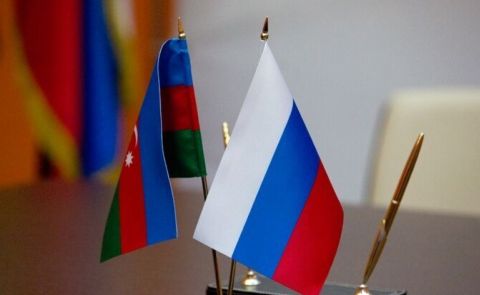
Tensions Rise Between Russia and Azerbaijan Over Medinsky’s Ukraine Conflict and Karabakh Remarks
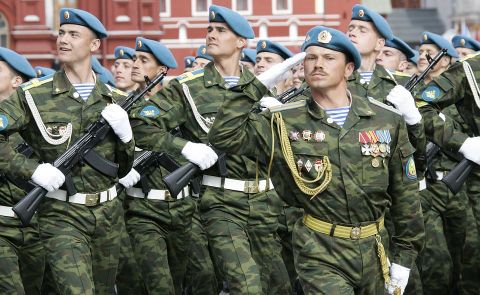
Chechen Official Outlines Conscription Rules for Russia-Ukraine War
